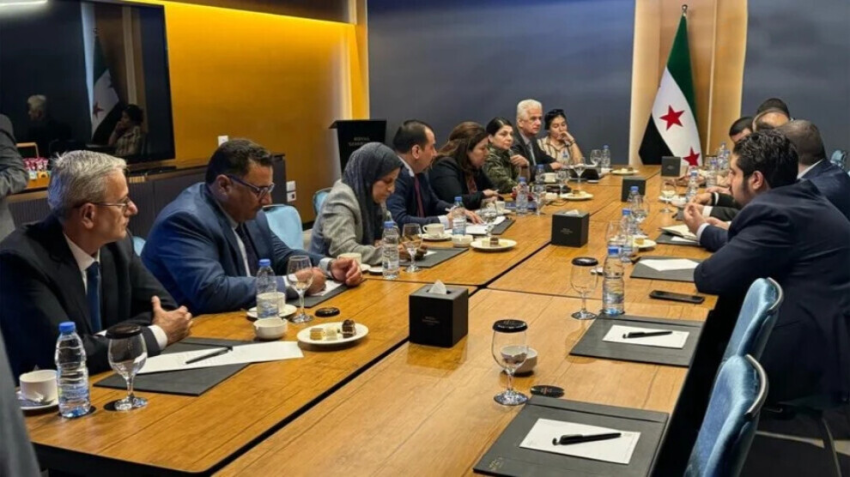
A senior delegation from the Autonomous Administration of North and East Syria (AANES/Rojava) traveled to Damascus for its first official meeting, on June 1, with the central government of Syria.
The government is headed by self-appointed interim president Ahmed al-Sharaa/Jolani from Hayat Tahrir al-Sham (HTS), a militia group that previously split from al-Qaeda, and which seized power from the crumbling Bashar al-Assad dictatorship in December 2024.
There were also side meetings involving Syrian Democratic Forces (SDF) commander Mazloum Abdi and Rohilat Efrîn from the Women’s Protection Units (YPJ).
Salih Muslim, a prominent Rojava revolutionary leader from the Democratic Union Party (PYD) told Green Left that the meeting took practical steps towards the unification of Syria.
The meeting, he explained, flowed from a March 10 agreement between Jolani and Abdi for a year-long integration process and set up working committees around the main points of that agreement.
“The most important thing [in this process] is to build trust on both sides to work together. There were some minor points they agreed on regarding Aleppo, return of displaced people and education.
“These are small steps but it means that this process will continue and the AANES delegation was satisfied with the outcome of this first official meeting and agreed to hold more of these meetings in the near future.”
Bigger issues, including the ongoing repression against Alawite, Druze and other minorities in the areas run by the central Syrian regime have still to be tackled.
“The HTS and groups acting with them are still continuing to do this in the coastal area and against the Druze.
“They do this in secret and [the HTS regime] does not admit responsibility.
“We follow it on the ground and it is really terrible. Even in Damascus, the Alawites, Druze and Christians are the target of killings.
“[The HTS administration] says that it is just individuals who are doing these killings and other atrocities and that it is not part of its program.”
Muslim said the repression is continuing, if not on the same scale as a few months ago.
Meanwhile, he added, there have been some positive impacts for the Rojava revolution from the historic decision of the Kurdistan Workers Party (PKK) to disarm and disband.
“Maybe we can see that Turkey has calmed down a little bit and may make peace with the Kurdish people in the north.
“They were attacking us in Rojava and claiming that we are connected to the PKK. But now there is no PKK.
“For the last two months there has been a ceasefire agreement with militia groups operating in Syria under the control of Turkey.
“The Turkish drones and planes are not bombing Rojava anymore but they are still controlling the sky.
“Turkey is still influencing the Damascus administration and secretly supporting the jihadist groups. Many of these jihadist militias and mercenary groups that Turkey supports are involved in the killings of religious minorities in Syria and in repression in Kurdish areas in Aleppo and Afrin.”
Muslim said that people in Rojava hope that if a new peace process between the Turkish government and the Kurds were established, that this would have positive consequences in Syria.